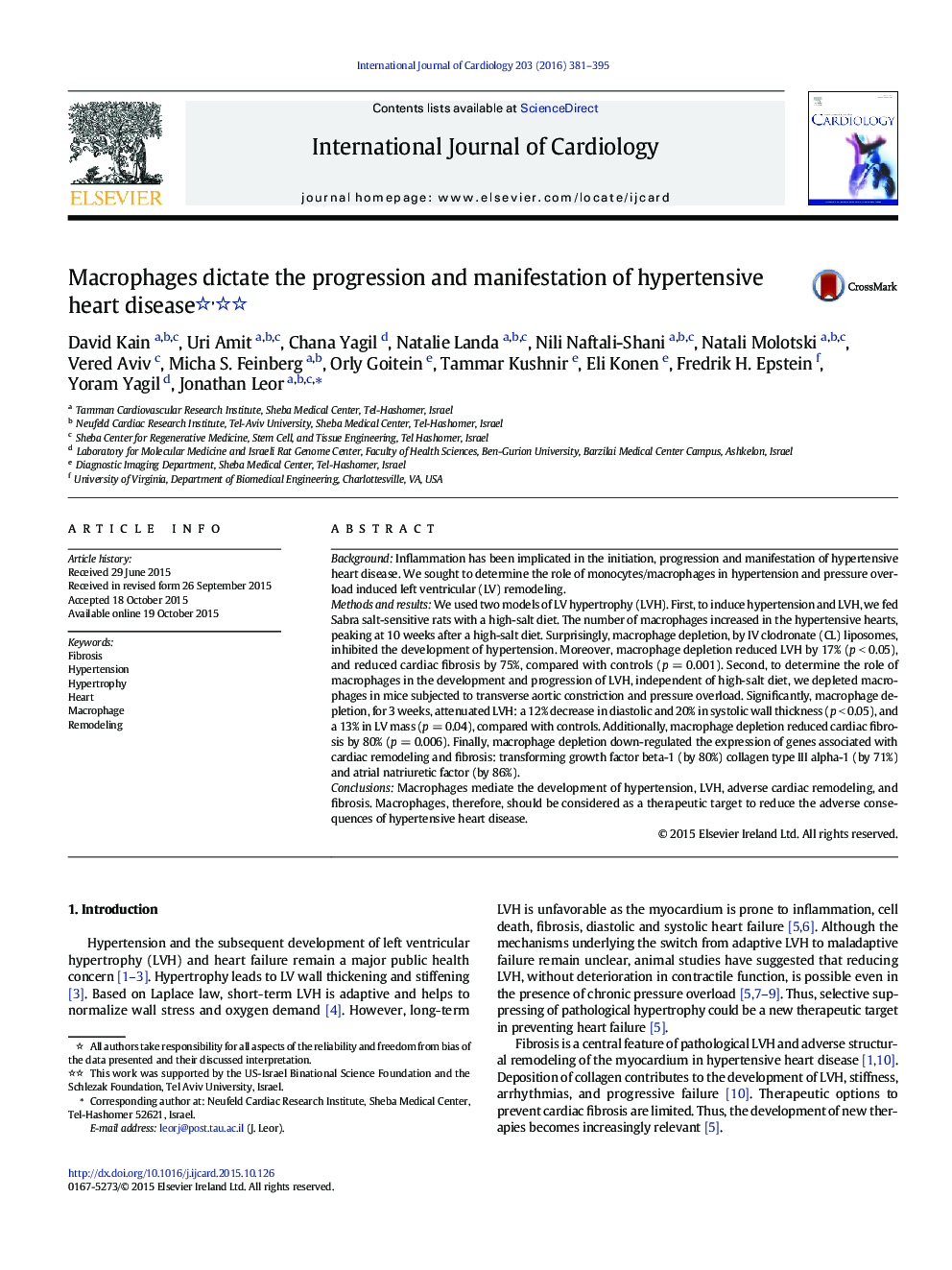| Article ID | Journal | Published Year | Pages | File Type |
|---|---|---|---|---|
| 5965625 | International Journal of Cardiology | 2016 | 15 Pages |
ABSTRACTBackgroundInflammation has been implicated in the initiation, progression and manifestation of hypertensive heart disease. We sought to determine the role of monocytes/macrophages in hypertension and pressure overload induced left ventricular (LV) remodeling.Methods and resultsWe used two models of LV hypertrophy (LVH). First, to induce hypertension and LVH, we fed Sabra salt-sensitive rats with a high-salt diet. The number of macrophages increased in the hypertensive hearts, peaking at 10 weeks after a high-salt diet. Surprisingly, macrophage depletion, by IV clodronate (CL) liposomes, inhibited the development of hypertension. Moreover, macrophage depletion reduced LVH by 17% (p < 0.05), and reduced cardiac fibrosis by 75%, compared with controls (p = 0.001). Second, to determine the role of macrophages in the development and progression of LVH, independent of high-salt diet, we depleted macrophages in mice subjected to transverse aortic constriction and pressure overload. Significantly, macrophage depletion, for 3 weeks, attenuated LVH: a 12% decrease in diastolic and 20% in systolic wall thickness (p < 0.05), and a 13% in LV mass (p = 0.04), compared with controls. Additionally, macrophage depletion reduced cardiac fibrosis by 80% (p = 0.006). Finally, macrophage depletion down-regulated the expression of genes associated with cardiac remodeling and fibrosis: transforming growth factor beta-1 (by 80%) collagen type III alpha-1 (by 71%) and atrial natriuretic factor (by 86%).ConclusionsMacrophages mediate the development of hypertension, LVH, adverse cardiac remodeling, and fibrosis. Macrophages, therefore, should be considered as a therapeutic target to reduce the adverse consequences of hypertensive heart disease.
